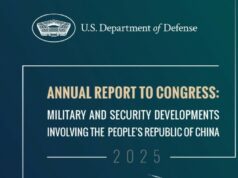Chiran Jung Thapa is a security specialist from Nepal with a background in National Security, Counter Terrorism and Crisis Management. He was also a speaker from Nepal at the First Chanakya Defence Dialogue in 2023, where his rather outspoken speech caused a bit of a stir.
In an equally candid interview to The Gist, StratNews Global’s flagship show on its YouTube Channel, Thapa lays bare the India-Nepal relationship, warts and all.
The relationship between India and Nepal has always been layered—bound by history, culture, and geography, yet fraught with unresolved tensions, he says.
In the aftermath of the 2006 peace accord, Nepal saw three major forces enter its national sphere: The Maoists (once labeled terrorists), the Chinese (increasing their strategic footprint), and Western missionaries. Many in Nepal see India’s role in facilitating these changes as destabilizing, with some blaming New Delhi for enabling a period of political and social upheaval.
This unease deepened in 2015 during the drafting of Nepal’s constitution. India, feeling sidelined, made quiet efforts to have its concerns accommodated. When that failed, the ensuing blockade—coming just after Nepal’s devastating earthquake—was perceived by many as a cruel blow. Memories of the 1989 blockade were revived, and resentment took root among the general populace.
Relations were further tested with India’s introduction of the Agniveer scheme, which altered recruitment into the Indian Army without prior consultation with Nepal—a country that has historically contributed thousands of Gorkha soldiers to India’s defense forces. The lack of dialogue and the perceived devaluation of the Gorkha legacy—renowned for its loyalty, endurance, and courage—was a significant setback, both diplomatically and emotionally.
Yet, amid the shadows, glimmers of resilience endure. The shared sacrifice and symbolic camaraderie between armies remain a cornerstone. The gesture of five Indian Army Chiefs visiting Nepal together, and the collective honouring of General Bipin Rawat, shows that the military relationship still carries deep mutual respect.
Economically too, the bond is profound: Nepal remains a major contributor to India’s trade, labour, and remittance sectors. Cross-border flows of people, services, and pilgrimage affirm a grassroots interdependence.
If India is the sun in the South Asian planetary system, as one analogy suggests, it must radiate warmth, not heat, says Thapa. Mutual respect, proactive dialogue, and regional empathy are key to transforming friction into forward momentum.
Watch the full interview to get more fascinating insights into a unique relationship, from someone who knows.
In a career spanning three decades and counting, Ramananda (Ram to his friends) has been the foreign editor of The Telegraph, Outlook Magazine and the New Indian Express. He helped set up rediff.com’s editorial operations in San Jose and New York, helmed sify.com, and was the founder editor of India.com.
His work has featured in national and international publications like the Al Jazeera Centre for Studies, Global Times and Ashahi Shimbun. But his one constant over all these years, he says, has been the attempt to understand rising India’s place in the world.
He can rustle up a mean salad, his oil-less pepper chicken is to die for, and all it takes is some beer and rhythm and blues to rock his soul.
Talk to him about foreign and strategic affairs, media, South Asia, China, and of course India.




